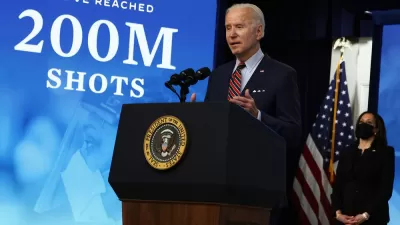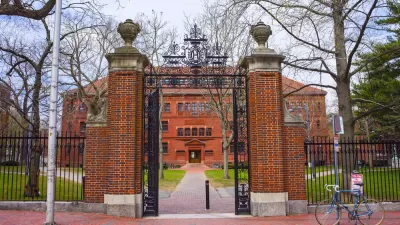When the Kumbh Mela, a 48-day Hindu festival held every four years, starts this week in northern India it will be the largest gathering in history. Researchers are using the opportunity to study the formation and inner-workings of a pop-up mega city.
When between 30 million and 60 million ascetics and pilgrims gather on the flood plain of the Yamuna and Ganges rivers to observe the specially significant Purna ("complete") Kumbh (observed every 12 years), "a thriving 'city' complete with hospitals, sanitation systems, markets and police," will grow in an area "about the size of Madrid’s famous Casa de Campo park."
"The Kumbh has always operated in this capacity," writes Logan Plaster, "but for a variety of reasons, the 2013 festival represents a significant shift towards seeing the festival as a seminal academic learning environment."
"Harvard’s South Asia Institute, a group that connects all the schools at Harvard for the sake of inter-disciplinary regional projects, sees this as an unprecedented opportunity. The Institute has coordinated 35 students and faculty from four distinct schools to travel to the festival and study everything from water quality to sanitation techniques to health clinic readiness."
Researchers from the four schools will observe a wide range of socio-spatial elements of the gathering, from "how prices within the many Kumbh markets get determined" to "how anonymized cell phone data can assist in infectious disease mapping."
"The hope is that by studying a pop-up mega-city, researchers would learn lessons applicable to a wide range of mass gathering events, from refugee camps to music festivals like Burning Man," notes Plaster. "How do people move en masse? How can the spread of disease be kept in check using minimal technology? The questions aren’t new, but by bringing four major disciplines under one tent—literally—Harvard is creating a new strain of dialogue, one which just might be able to keep up with the crush of the crowd."
FULL STORY: What We Can Learn From the Largest Gathering in Human History

Planetizen Federal Action Tracker
A weekly monitor of how Trump’s orders and actions are impacting planners and planning in America.

Maui's Vacation Rental Debate Turns Ugly
Verbal attacks, misinformation campaigns and fistfights plague a high-stakes debate to convert thousands of vacation rentals into long-term housing.

San Francisco Suspends Traffic Calming Amidst Record Deaths
Citing “a challenging fiscal landscape,” the city will cease the program on the heels of 42 traffic deaths, including 24 pedestrians.

Defunct Pittsburgh Power Plant to Become Residential Tower
A decommissioned steam heat plant will be redeveloped into almost 100 affordable housing units.

Trump Prompts Restructuring of Transportation Research Board in “Unprecedented Overreach”
The TRB has eliminated more than half of its committees including those focused on climate, equity, and cities.

Amtrak Rolls Out New Orleans to Alabama “Mardi Gras” Train
The new service will operate morning and evening departures between Mobile and New Orleans.
Urban Design for Planners 1: Software Tools
This six-course series explores essential urban design concepts using open source software and equips planners with the tools they need to participate fully in the urban design process.
Planning for Universal Design
Learn the tools for implementing Universal Design in planning regulations.
Heyer Gruel & Associates PA
JM Goldson LLC
Custer County Colorado
City of Camden Redevelopment Agency
City of Astoria
Transportation Research & Education Center (TREC) at Portland State University
Jefferson Parish Government
Camden Redevelopment Agency
City of Claremont





























